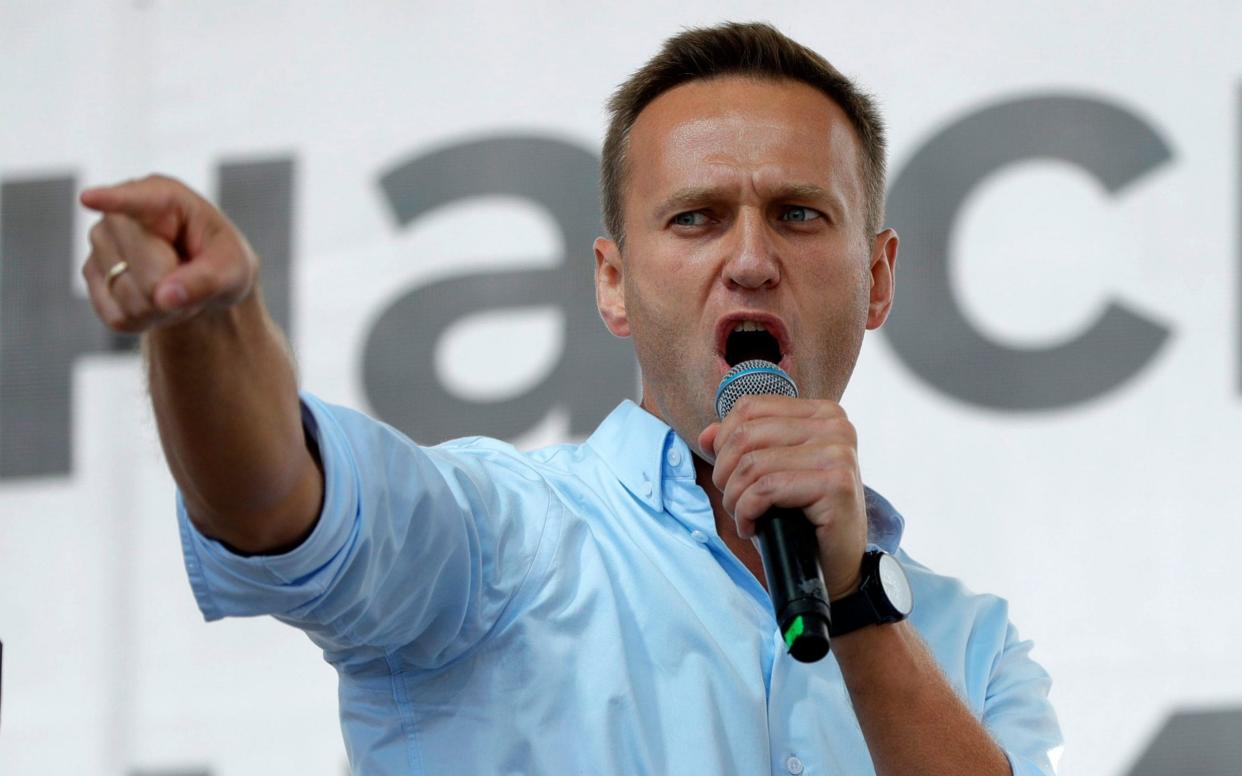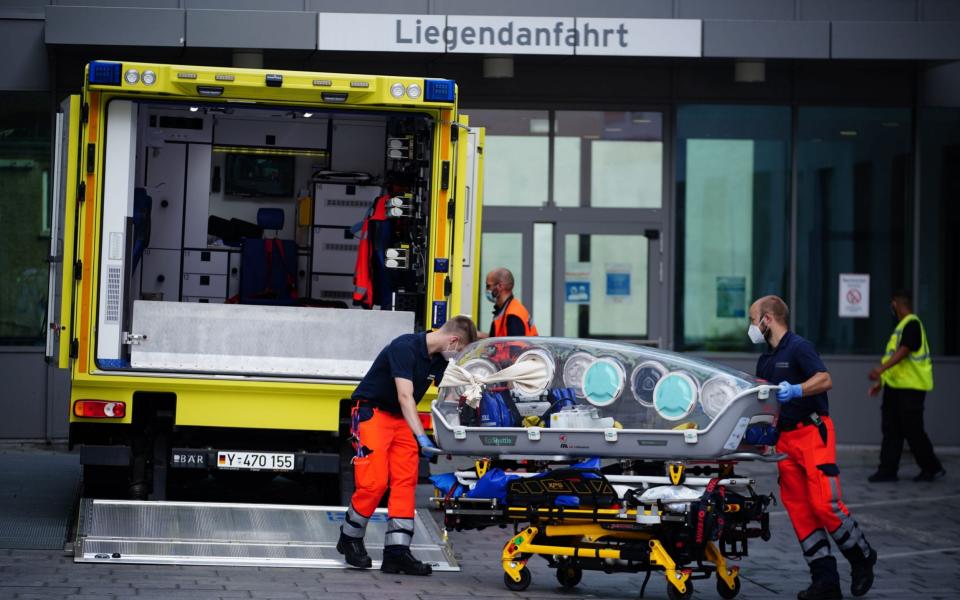Russian opposition leader Alexei Navalny out of medically induced coma

Alexei Navalny, the poisoned Russian opposition leader, has regained consciousness and is reacting to stimuli, doctors announced on Monday.
He has been brought out of a medically induced coma for the first time since his suspected poisoning with the nerve agent Novichok, and is starting to breathe on his own.
The news came as Dominic Raab, the Foreign Secretary, said he had summoned the Russian ambassador to register the UK’s “deep concern about the poisoning".
“It’s completely unacceptable that a banned chemical weapon has been used and Russia must hold a full, transparent investigation,” Mr Raab tweeted.
Mr Navalny's doctors stressed it is too early to determine whether he has suffered any long-term damage. The prominent Kremlin critic is being treated at Berlin’s Charite Hospital after being transferred from Russia last month.
“The patient has been removed from his medically induced coma and is being weaned off mechanical ventilation. He is responding to verbal stimuli,” the hospital said in a statement. “It remains too early to gauge the potential long-term effects of his severe poisoning.”

Mr Navalny fell ill on a flight from the Siberian city of Tomsk to Moscow last month. He was put into an induced coma by Russian doctors after the plane made an emergency landing in Omsk. Russia initially claimed he was too sick to be moved but later bowed to international pressure and agreed to his transfer to Berlin.
Angela Merkel announced last week that a German military laboratory had found traces of Novichok in his body. The nerve agent, which was developed by the Soviet Union, is the same poison used in the 2018 attempted assassination of Sergei Skripal in Salisbury.
It is thought to be so sophisticated it could only be manufactured by a state. Mr Navalny is one of President Vladimir Putin’s most outspoken critics, and Western governments have pointed the finger of blame squarely at Russia.
So far the Kremlin has refused to cooperate with investigations. A spokesman for Mr Putin said: “Attempts to somehow associate Russia with what happened are unacceptable to us, they are absurd”.
Meanwhile, Mrs Merkel indicated for the first time on Monday that she could be prepared to cancel a controversial gas pipeline project over the poisoning.
The German chancellor has faced calls from both allies and opponents to pull out of Nord Stream 2, which will allow Russia to pump natural gas directly to Germany.
So far Mrs Merkel has defended the pipeline, which is opposed by the US on the grounds it will make Europe too dependent on Russia for its energy needs.
But her spokesman said she now believes it would be “wrong to rule anything out”.
Heiko Maas, the foreign minister, said at the weekend: “I hope the Russians will not force us to change our position on Nord Stream 2.”

